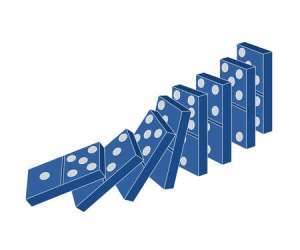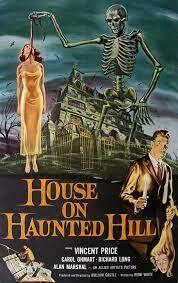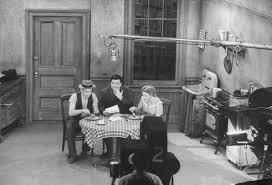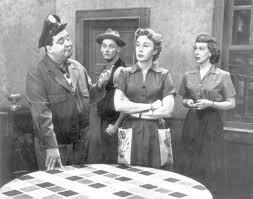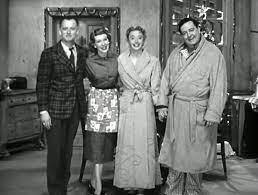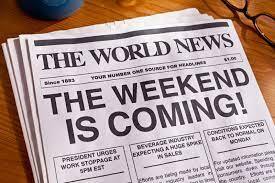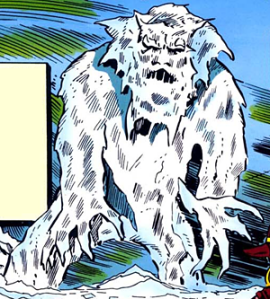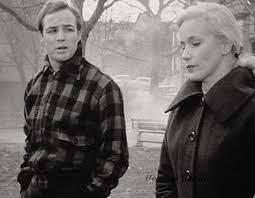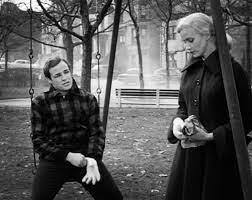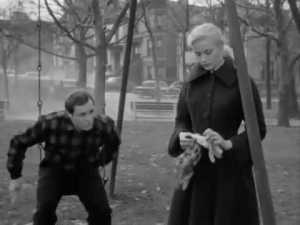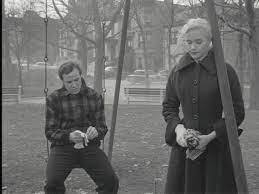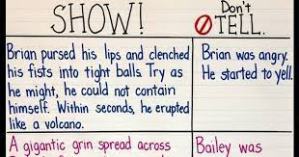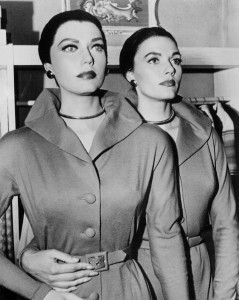Michael S. Fedison's Blog, page 2
December 31, 2023
A New Year . . . and a Writing Resolution
Admittedly, I have never been one to make New Year’s resolutions. Generally, for me, the first day of a new year comes and goes, with little–if any–fanfare. But this year’s a little different. My creative output has been quite small the past couple of years. After The Eye-Dancers and its sequel, The Singularity Wheel, I simply wasn’t struck with many ideas that jumped out in front of me, demanding my attention. On the rare occasions when they did happen, they had only temporary appeal before fading away, like background music you slowly walk away from.
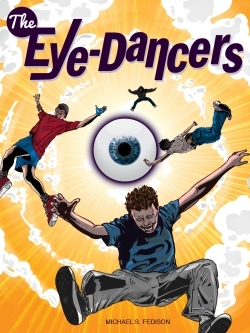
Until this past week.
It was the way it often happens–sudden, like a bolt of lightning in a cornflower-blue sky. Unasked for. Unexpected. As I was taking a walk (something, by the way, that I’ve often found to unlock a helping of creativity), I had an odd memory come to me. Ninth grade, years ago. A different century. One day in science class, we had a substitute teacher. I still remember his name–Disraeli. And that’s exactly how he referred to himself–not “Mr. Disraeli.” Just “Disraeli.”
He eschewed the regular lesson plan that day, and instead quizzed us on riddles and mind-teasers. He offered puzzles, multiple-choice philosophical questions. He even read from his own books–passages that he believed to be enlightening. And they were. He didn’t seem to care about the syllabus or what we’d been learning about in the weeks prior. He just took his day and taught what he wanted. I never saw him again.
But he left an impression.
From that memory, a story idea emerged–at once related and unrelated. The idea also revolved around a high school substitute teacher–but this one is an English teacher. Call him Mr. Robbins. He, too, ignores the lesson plan on his one day teaching a particular class. It’s ninth grade, a snowy day in upstate New York. The students are feeling lazy, unmotivated . . . until Mr. Robbins asks them a probing question.
“Are you alive?”
Some of the students pause, briefly, then shrug. Others laugh, thinking it’s a joke. But one student–call him James–sits there, rapt, listening to the substitute teacher’s lesson. It’s not a question James has ever asked himself. But he’s a cerebral introvert, enjoys reading, thinking. He’s all ears.
Mr. Robbins carries on. He explains that our lives–if we are lucky and not stricken by poverty and oppression or war and famine–are generally spent on mundane things–getting up in the morning, brushing our teeth, eating breakfast, doing homework (which elicits an understanding groan from the class), finishing chores, going shopping, riding the bus, getting stuck in traffic. On and on.
But there are moments–graduations, weddings, reunions, deaths, first loves, a game-winning home run–that stay with us, where the stakes rise, the importance magnifies, and our brains tell us, even at a subconscious level–to remember.
Do we, though? Yes, we remember bits and pieces. But, even with life’s monumental moments, there is much we forget. And the mundane things? They come and go like the wind, like breath on a cold morning, here one minute; gone the next. So much of our existence is forgotten–almost as though it were never lived at all.
And so, Mr. Robbins asks again, “Are you alive? Really alive? If you forget your life away? If nothing lasts in your memory aside from a few cloudy details here and there? Is anything real?”
He really has James’s attention now. The ninth grader hangs on Mr. Robbins’s every word.
The substitute teacher then explains a method he’s devised–a way of capturing memories, moments, as they happen–recording them on paper in such a way that, ten years hence, twenty years, thirty years, forty–you can reread what you wrote and the experience will come crashing back to you like Niagara Falls. By this juncture, the majority of the class is fully tuned out, openly talking amongst themselves, not worried about what a zany substitute might do to them.
But James listens.
Mr. Robbins carries on, making eye contact with James several times, as if understanding he has a serious acolyte, someone in the sea of freshmen before him who might learn and practice and realize. He explains that, as soon as possible, within minutes of the moment you want to memorialize, write it down. Capture it while it’s fresh. But don’t write like a standard journal entry. No. Write in a structured way, detailing what happened, factually and specifically. The time frame–how long it took. Who was involved–what were they wearing? What did they say? Facial expressions? What perfume or cologne were they wearing? Where were you? In a public place? Describe it! As many details as you can. In your house? What room? What time was it, exactly? Were there dishes in the sink? Was the TV on in the background? What was it playing? Essentially, a detailed record of events, capturing everything–every detail. No matter how minute, how seemingly insignificant. Leave nothing out. Anything can be a trigger later on for the brain, for the subconscious to remember the event you are chronicling. One detail can serve as the lead domino that, when knocked over, slams into all the rest, allowing the memory to come alive decades later when the entry is read. In this way, you can capture moments of your life–they can be big or small, singular or mundane. If you want to memorialize what you had for breakfast and how you feel on a given day, do this same process. It will stick. It will work.
And then, after you record every detail you can possibly think of, then, at that point, write how you feel. What is it about this moment you are capturing that sticks with you? What effect does it have on you? Write that down. And then–you have it. As much as you can remember something years later . . . you will remember this. Your vivid writing of events and your immediate reflections afterward, etched on the page, will preserve as much as is humanly possible. Like an heirloom, an organism preserved in amber, it will remain, able to be called to the surface of your conscious mind whenever you read it. Do this with enough life events and you will leave a preserved record–not so much for others (though they would certainly be able to ascertain much from your detailed accounts), but for yourself. For your ability to remember and recall.
To live and not to forget.
Such is the story idea I have. Essentially a journey into what makes a life a life. What does living mean? Why do we remember what we remember, and are we more fully alive if we find a way to vividly remember more moments of our lives.
I surely won’t finish this novel in 2024. But I’ll start it. And make a memory.
Thanks so much for reading!
Mike
November 30, 2023
Thankful . . . for Ideas
In this season of Thanksgiving, I am thinking of things to be, well, thankful for. One is power–electrical power! The other night, Vermont was hit with a heavy, wet snowstorm, and we were “in the dark” for over thirty hours. Nothing makes you appreciate heat, running water, and lights more than the sudden absence of the same. So, now that things are back up and running–yes. Very thankful for them!
But the topic I’d like to discuss in this post is something else entirely–ideas, the process, the unfinished product, the development of a seed into something more. Obviously, as creatives–writers, singers, dancers, visual artists–the finished product matters. You don’t want to spend three years writing a novel only to have it come out hopelessly flawed and awful. But sometimes, I think, we tend to get too caught up in the outcome–what others will think of what we’ve done, how many copies it will sell, what kinds of reviews it will get, and so on. Again, those things matter, clearly. But they are not why we create. They are not why we write and paint and sing.
We create because we love to do it. Because there is something inside of us, innate, that will not rest until and unless we do. We create because, when the process is stripped away from outcome, it is fun. And it is what we are meant to do.
Think about those moments when an idea strikes. You could be taking a walk, in the shower, washing your car, mowing the lawn, playing catch with your kids, sitting in the waiting room while your oil is being changed at your local garage, watching a football game, eating breakfast. Literally anything and everything. That’s the beauty of it. Ideas come when they come, unasked for and unplanned. They hit suddenly, abruptly, often with enough force to make you gasp or exclaim, “Wow. Where did that come from?”
Indeed, where do ideas come from? No one knows–it can only ever be speculation. I believe ideas exist outside of ourselves, like cosmic confetti swirling around the atmosphere, pixie dust that, every now and again, descends onto us, and it is our responsibility, and choice, to accept the gift. Because that’s what ideas are–a gift. From the muse, a creator, the universe, the whims of time and place.
Once an idea strikes, once you begin the process of bringing that amorphous jumble of energy into something tangible and finished, something to share with the world, there will of course be periods of frustration, writer’s block, questioning, doubting, and then editing and revising until you can’t stand to see what you’ve written a second longer. (This will pass, eventually.)
But the creative process is also replete with countless new ideas, smaller ones, things that add muscle and sinew to your literary skeleton. That writer’s block mentioned above? It, too, shall pass. An idea will come again, and the quandary will be solved. Idea upon idea upon idea . . . until the work is written, the song is sung, the picture is painted.
It is an ongoing process of discovery, exploration, full of aha moments and a sense of wonder. Why rush it? Why look ahead to the end? Enjoy it! It is a gift. A treasure from the universe to you.
And that is something to be thankful for–any time of the year.
Thanks so much for reading!
Mike
October 31, 2023
(Another) Unscary Halloween
Last year at this time, I wrote about going contrary for Halloween. Instead of Michael Myers and Jason Voorhees and zombies and werewolves and vampires and ghosts and ghouls and Vincent Price and the undead and mummies and monsters and things that go bump at 3:00 a.m., I decided to swim against the current and spend the spooky holiday with lighthearted, comical fare.
And this year . . . I will do it again! Maybe we can start a movement, a trend. Unscary Halloweens! For me, 2023 has been a hard year, and the last thing I want to do is watch a horror movie or a violent TV show. No. Give me something fun and light, something that puts a smile on my face.
The difference between last year’s unscary Halloween and this year’s version of the same? Last year, I sampled an assortment of comedies–a couple of different sitcoms, some old Tonight Show interviews, a few scenes from my favorite funny movies. But this Halloween, I will be more targeted, more specific. I will narrow it down to a single old show–The Honeymooners.
For whatever reason, I have always loved The Honeymooners. It aired many years before I was born, but that doesn’t matter. There is nothing like the black-and-white presentation, the live TV aspect of the show, where, occasionally, the actors flub their lines, the genuine, unstaged reaction of the live studio audience, the hilarious comedy of the show, the often heartwarming (if formulaic) endings. It’s a simple show, the majority of which takes place in the small kitchen of a Brooklyn apartment. But the simplicity adds to the warmth and the humor. Also, as a student of history, including pop history, all my life, I enjoy watching a live television show from the mid-1950s.
Throw in the incredible cast, with Jackie Gleason, Art Carney, and Audrey Meadows, and you have a sitcom for the ages. It was a trendsetting series, leading directly to The Flintstones. And the dynamic between the loudmouthed but lovable Ralph Kramden (Gleason) and the innocent, childlike Ed Norton (Carney) paved the way for many future sitcom characters and relationships.
Which episodes to watch? That is the question. Maybe “The Worry Wart,” where Ralph is sent a notice from the IRS about his tax return and Norton is there to help him. One of the funniest episodes in television history. Maybe “Young at Heart,” when the gang goes roller skating, trying to relive their youth. Maybe “Twas the Night Before Christmas,” where Ralph ends up being ashamed of the present he bought his wife, Alice, only to learn, at the end, that he is the gift she cherishes. Or maybe “The Golfer,” where Norton (who knows nothing about golf) tries to teach Ralph (who also knows nothing about golf) how to play the game–right in the tiny Kramden kitchen. Or perhaps “The $99,000 Answer” in which Ralph prepares for a game show where he selects the category of popular songs by studying virtually every piece of music ever written ahead of the show, only to be stumped when his time arrives for real.
Or maybe all of them! Maybe, just maybe, I’ll pop some popcorn (old school, on the stove top with real kernels and real butter), sit back, and watch half a dozen episodes.
Let the rest of the world watch horror movies. I’ll be enjoying one of the best sitcoms in television history, on a spook-free Halloween.
Thanks so much for reading!
–Mike
September 30, 2023
With My Back to the Class (A Moment Remembered)
When Mrs. Northrup asked me to stay after class, I knew something was up. But what? I hadn’t done anything wrong. At least not that I could remember. Worried, my mind raced feverishly, like a top spun out of control, trying to figure out why she wanted to see me.
“Michael, I know you’re shy,” she said once the rest of the students were gone. Now that was an understatement. I wasn’t just shy; I was the shiest kid in the class, by far. Mrs. Northrup was a veteran, though–she had taught first grade for decades. My older sister and two older brothers had been her students several years earlier. As had many others. She had a reason for saying this. She had something planned.
I remember the late afternoon sunlight filtering in through the windows, dust bunnies swirling in the air. The janitor, Mr. Thompkins, was out in the hall, sweeping the floor. At that moment, I just wanted to go home. It was a Friday; the weekend was here. I knew my mother would be waiting out in the parking lot. Hopefully Mrs. Northrup wouldn’t keep me long.
“You’re one of my best readers, you know,” she said. A compliment! So maybe I was in the clear? “And I know you might not want to, but I feel it would be good for you to read aloud in front of Mr. Johnson’s sixth-grade class upstairs.” With that, she handed me a single piece of paper, old-school typewritten words printed on the page. I can’t recall what the words were, or what they were from. That detail has been swallowed up by the gulf of years. But I do remember thinking that page looked like it would take a long time to read aloud in front of sixth graders!
Mrs. Northrup smiled. “First thing Monday morning, after attendance, I want you to go up to Mr. Johnson’s class, by yourself, knock on his door, and proceed to stand in front of his class and show them how well a first-grade student can read. Okay?”
I nodded. But I felt the panic rising. I couldn’t imagine reading in front of students that old. Heck, I couldn’t imagine reading in front of students my own age! Why was she doing this?
“I think it will be good for you,” she said. “It’s time to break out of your shell.”
Well, actually, I liked my shell. It was snug and warm in there. I was perfectly comfortable, thank you very much. But I didn’t say any of that. I just swallowed hard and nodded again.
“Run along, now,” Mrs. Northrup said. “You have a big day on Monday.”
As I left her classroom and passed Mr. Thompkins out in the hall, I wondered how it had all come to this. Five minutes ago, I was looking forward to a fun weekend. Now I was dreading the passing of time. I hoped Monday never came.
But it did, of course. It did. And, true to her word, Mrs. Northrup directed me to Mr. Johnson’s class after roll call. She even made a big deal of it by telling my classmates. Ugh. Was there a hole I could fall through?
I still remember exactly how it felt climbing the stairs to the second floor that day in old Abraham Lincoln Elementary School. With each step up the stairs, it was like I was nearing my execution. The paper Mrs. Northrup had given me on Friday–the one I needed to read to the sixth-graders–was in my hands. I held on tight, as if the paper, the words on the page, might imbue me with strength and quiet my fears.
And then, there I was. Outside Mr. Johnson’s sixth-grade classroom. His door was half-open. I could see the room full of students. Big students! Sixth-grade students. To my six-year-old mind, they looked like giants sitting there, waiting to judge me.
Mr. Johnson spotted me outside his doorway. “Michael! Welcome! We’re expecting you. Mrs. Northrup tells us you have something to read to us. Come on in!”
I felt an urge to flee, to just turn around and run. But a few weeks earlier, Mrs. Northrup had asked me to do something I didn’t want to do (the specifics of that request lost to time), and, instead of doing it, I’d pretended to get sick and went to the school nurse. A few minutes later, Mrs. Northrup was there, in the nurse’s office, telling me to get up and come back to class–she knew what I was up to.
So, this time, I was stuck. I couldn’t try something like that again. Mrs. Northrup was strict. I didn’t want to be relegated to her dog house.
I looked into the room–it appeared cavernous, an educational Grand Canyon, filled with intimidating big kids who were all looking out into the hallway–at me. So I did the only thing I could think of.
I entered the classroom, with my back to the class, sidestepping in like an acrobat on a tightrope. I affixed my eyes to the blackboard at the front of the room. Behind me, I heard a couple of the sixth-graders giggle. Mr. Johnson looked at me from his desk. Out of the corner of my eye, I thought I saw him smile.
And then, I proceeded to read my paper from beginning to end. I read it to the blackboard, my back to the class. And when I was finished, without pausing for a single second, I sidestepped out of there, my back to the class the entire time. I never once faced them.
From there, I went back to my first-grade classroom, where Mrs. Northrup greeted me. “Bravo, Michael!”
I didn’t tell her what I’d done. That I hadn’t faced the sixth-graders. I just went back to my desk.
When my mother picked me up after school that day, she asked me how it went. I just said, “Okay.” I had read to the sixth graders, hadn’t I?
That evening, after supper, Mrs. Northrup called. My mother talked with her for just a couple of minutes. About halfway through the conversation, she burst out laughing. Mr. Johnson had clearly relayed my performance to Mrs. Northrup, who was now informing my mother. Who then told my father and siblings. After a little while, the entire neighborhood knew. I didn’t mind. The story became something of a legend in my family, like a treasured heirloom. “Do you remember the time when Mike . . .”
I think back on such moments now with a sense of nostalgia, a deep appreciation for what was–for family and childhood and memories.
Little things. Just random memories. Experiences from our youth. Quiet moments. These are the kernels of stories, of songs and poems and novels. We don’t need to write about “big” things or earth-shattering adventures.
We just need to tell our story.
Thanks so much for reading!
–Mike
August 31, 2023
Precious Moments, Precious Memories, and the Love That Binds It All
Time–the meaning of it, the concept of it, the passing of it–has been on my mind of late. Memories. Moments. Days that come and go, like smoke on the wind, like vapor. The transitory nature of our lives. The inexorable passage of years.
This month, I lost someone unspeakably dear to me. It is hard. Life will not be, cannot be, the same. It happened fast. One moment, they were there. The next, they are gone. A dreamlike mist has descended over many of my senses. Past, present, and future all merge into one, a coalescing of time and space and matter. I reach out to touch a memory. It is there, real, actual, and yet immaterial. It slips through my fingers like a lake breeze.
Time is an illusion, the concept of it a construct of our need to place order on the infinite, the divine, the universal. Certain memories from decades ago feel as if they happened last week; while some memories from last week feel decades old. There is no ticking clock at the soul level, no segmentation of hours and days and weeks and years. There is only a long, flowing undulation of experience, meaning, and love.
Indeed, it is the moments of our lives that matter most, the people and places we connect with, the memories we establish and cherish, and hold onto like talismans of the soul. These are eternal. They are stored away in the secret recesses of the heart, there to be called upon whenever we think of them, and oftentimes when we don’t. They can rise to the surface of our consciousness at the most unexpected of moments.
Sometimes these memories, these moments, are painful. They can elicit a longing, a crying out, a lamentation. But I have learned that they are precious. They are what makes us, us, and they are to be cherished and nurtured like the gifts they are.
For me, I have always needed to write things down, to preserve them on the page (or the computer screen). Real-life experiences are often sifted through the mill of the creative process, emerging in stories and characters and scenes and lines of prose that pour forth from the subconscious. This will be no different.
In the end, it’s all about love, I think. That’s what makes the memories so alive, the emotions so overpowering and enduring. It is love that defines us and shapes us.
“Love gives naught but itself and takes naught but from itself,” Khalil Gibran wrote a century ago. “Love possesses not nor would it be possessed. For love is sufficient unto love.”
Thanks so much for reading!
–Mike
July 31, 2023
Gym Class Dread (Or, Silver Linings in the Discomfort)
It’s a funny thing. My junior-high and high school physical education experience is now decades in the rearview mirror, from a previous century, no less. And yet, those memories of 1980s and 1990s gym class are still vivid. Some of the most enduring school memories I have stem from PE.
Admittedly, some of them are good. I was heavy as a teenager, and I didn’t play on any of the official school teams. But I was surprisingly good at sports–probably because I had two older brothers, and I always wanted to keep up and compete with them. Out of shape? That I was. But I had my skill sets! And every now and again, I would overcome the gym class nerves and excel. There was the time I played goalie in an indoor soccer game, and there was a substitute teacher that day. I was diving and jumping and making improbable saves. When one shot got through and the other team scored, the sub teacher came up to me and asked my name.
“Mike,” I said.
“Well, Mike,” he replied. “You can’t save ’em all. You were great today!”
Obviously, the positive reinforcement of this stranger, who I’d never see again, resonated with me. I still remember it decades later!
There were other high points, too, scattered through the debris of PE memories, pearls amidst the wreckage.
The trouble was . . . gym class psyched me out. I hated three-quarters of the activities we did. And when we played a sport I wasn’t good at, I dreaded making a fool of myself. The instructors, too, always made me nervous. You never knew what they were going to do. One of them even used to loosen his sneakers and kick them at us. Another one would make us do calisthenics for half the period before we played any sports. I usually approached gym class with dread.
Nothing was worse, though, than square dance. Every year, usually in late winter, we’d do square dance for a couple of weeks. The teachers would bring the boys and girls together, line us up opposite each other, and have us choose partners. Well, when I was sixteen, no girl wanted to dance with me. I was overweight and had acne. It was mortifying.
To make matters worse, the teachers would break out an ancient (even for back then) record player. I hated that record player! It was the same music they played every year. I’d have nightmares about it. I can still hear the performer on that record–a guy trying so hard to sound cheerful, telling us to “face your partner,” “swing her round and round,” and “do-si-do.”
There were times when the dance called for us to switch partners midstream, and the girl I was switched to usually rolled her eyes and made it clear she didn’t want anything to do with me. I often wished a hole would open up right there in the gymnasium floor, and that I would fall through it straight to the center of the earth.
The gym teachers were oblivious. They smiled and clapped and tapped their feet on the floor. The period would last no longer than forty minutes, but it felt like ten hours. And yet . . . and yet. I welcome these square dance memories. Along with all the other memories from PE that are cringe-worthy and embarrassing. Why? I suppose because they re a part of my life, an aspect of my adolescence. They played a part in shaping the adult I would become, for good or ill.
And maybe (probably), they keep me in tune with being a teenager, with growing up, with the awkwardness and social angst of adolescence. Perhaps memories like these help me to get inside the head of the youthful protagonists I write for. One can only hope!
Also, my next writing project will be a collection of personal essays, a trip down the proverbial memory lane, if you will. I’ll be culling and cultivating experiences I had growing up and writing them down. Childhood memories, teenage memories, take us back decades (well, some of us). They consist of events that formed something in us, something strong and enduring, at the core of our being. Remembering them, writing about them, sharing them . . . maybe that can cultivate a feeling of community, of oneness, of togetherness. Maybe that’s what writing is, or should be, at its heart.
An outlet available to each of us where we express ourselves, who we are, what we believe, and hope it touches at least one other person who reads it.
Thanks so much for reading!
–Mike
June 30, 2023
Lemonade, Back Porches, and Lazy Days (Or, What’s the Rush?)
What’s your to-do list look like today? This week? This month? If you’re like most people, it reads like a Victorian novel, with never-ending lists, sentences that carry on for an entire page, and a heft and a volume that is downright intimidating.
Given all of this, do you often find it hard to relax, slow down, decompress? Most of us do. And maybe the season of summer is here to remind us–it is okay to take the foot off the gas, every now and then, to drink that iced tea or tall glass of pink lemonade.
Where I live, in the rural hills of east-central Vermont, there are, at this time of the year, hundreds of fireflies that appear on my property, as if by magic, when night falls. They swoop and soar above the meadow out back, they zoom forward just outside the window, flickers in the dark. Sometimes I just stand at the window for several minutes and watch. Think. Take it all in. Slow down.
Summer is a time for long. lazy days, back-porch conversations, slow walks along a country road. (Or through a city or suburban neighborhood.) The sun is high in the sky, the air is hot, the nights warm, like velvet. Nature itself is inviting us to take a long, deep breath.
Indeed, when it comes to stories–novels or movies, stories I read or write myself–oftentimes my favorite scenes are the interludes, the quiet moments when the action slows down, when the conflict subsides, and when the characters can take a moment and share a laid-back give-and-take, enjoy a meal, or just hang out, unhurried. Scenes like this, which some find boring, strike me as relaxing, the narrative inviting me to join the characters and put my feet up. To stop always being in a hurry all the time.
So, maybe we should take the hint. Listen to the rhythms of the season, the warm nights, the long days, the long, languorous humming of the cicadas overhead.
Pour that lemonade, open a good book, and relax. What’s the rush?
Thanks so much for reading!
–Mike
May 31, 2023
The Myth of a Moment (And How the Written Word Can Make It Real)
You hear it all the time. Behavioral experts, motivational speakers, philosophers, life coaches . . . “Live in the moment. Stay in the now. The moment we’re in is all we have.” Fair enough . . . on the surface of it. But when you take a step back and really look at it . . . what does this mean? And what, in fact, is a moment, anyway?
Is a moment the single second we are living in, the instant in time that is “now”? If so, it is over and done so quickly, before we can “live it,” it is gone. For example, if you and I were standing in line, waiting for an ice cream cone, and I said to you, “How’s your day?” What is the “moment”? By the time you hear those words, the “moment” is over. Maybe your response–“Great, how’s yours?”–is the moment? But that, too, is finished before I have time to think about it or even respond to it.
Is the “moment” the entirety of the conversation? Maybe. And if the exchange is limited to a few passing pleasantries, perhaps this is as valid a definition as any. But what if the conversation lingers and persists for five minutes? Ten? A half hour? An hour? (It’s a LONG line!) Then what? Is the “moment” the full hour? Or is it broken into individual seconds, each too swift to grasp? Individual minutes, maybe? What chunk of time do we label “a moment”?
Additionally, do we remember our moments? If they come and go with the blink of an eye, if we can’t even fully experience them when they happen (by the time our brain processes them, they are already in the past), how on earth do we remember them after the fact? Obviously, we remember big things, certain memories and events that stand above the fray, things we carry in our hearts like buried treasure for the entirety of our lives.
But think about it. Over 99 percent of our “moments” are gone from our conscious minds, erased, as if they never happened. Now, I believe they are still inside us–at a deep, subconscious level. But, short of dreams or perhaps hypnosis, they are inaccessible, tantalizing but unable to be grasped. Trying to recall the vast majority of moments even from yesterday, let alone last year or ten years ago, is like attempting to hug the wind or encase an aroma in your hands. It cannot be done.
So, where does that leave us? Can we really “experience the moment,” after all? We compensate in a holistic way. I can’t remember what I did yesterday at precisely 9:04 a.m. But I can remember what I did, in general, yesterday morning. I can’t remember what my brother did on December 1, 2007. But I have a collection of memories of my brother, culled and collected over time, that define my experiences with him. In short, our memories, our moments, even the people we love, become composites, a vast collection of individual experiences brought together, coalescing in a formed and layered collage, like a building continually being added onto, story by story, row by row.

December 2007 calendar
It is often frustrating–this inability to step back within the eye blink of a moment, the limitations of our conscious memory, which forget the vast majority of the moments of our lives. We do the best we can with what we have.
But there is something that fleshes out moments, that pours concrete under the foundation of events and experiences. And that is the written word.
Indeed. What’s your favorite novel? To Kill a Mockingbird? Wuthering Heights? The Shining? Maybe you’ve read it a dozen times. You know the story well, inside and out. But can you, from memory, quote the fifth sentence on page 138? Of course not. Like a “moment,” it is gone–experienced once (or several times), but no longer a part of your conscious memory. With a novel, though, with anything written and preserved on the page, you can check. You can go back. You can turn to page 138, and you can relive that moment, and you can reread that sentence! You don’t have to combine disparate words and chapters into a blended whole. You can go granular, and experience individual sentences again, and again, and again, if you so choose.
That is the magic of the written word. It makes things permanent. It takes a fleeting moment, a scene, a paragraph, a sentence, and it tattoos it to the page, forever accessible, forever able to be read, and experienced, again.
Magic, indeed.
So . . . you want to live in the moment? Remember moments from the past, with crystal clarity? Then grab a book . . . and read.
Thanks so much for reading!
–Mike
April 30, 2023
No Actors to Bail You Out (Or, You’re on Your Own)
There is a scene in the 1954 classic movie On the Waterfront that, one can argue, introduced the world to the art of modern, naturalistic acting. Terry Malloy (played by Marlon Brando) is talking with Edie Doyle (Eva Marie Saint) in a park in the city. He clearly enjoys her company–they only recently met. But she isn’t sure about him, especially because they met in part due to the death of her brother. Not exactly an auspicious way to start a relationship.
And Edie, at this point in the film, has no intention of starting a relationship with Terry. But as they walk together, he talks a mile a minute, engaging her, trying to break the ice. At one point, fiddling with a fashionable pair of white gloves, Edie drops one on the ground. Terry quickly picks it up . . . but doesn’t give it back to her. Instead, he caresses it, explores it, and then puts it on his own hand, all the while continuing with the conversation. Edie doesn’t acknowledge it, though she shows through her glances and body language that she is very aware he now wears her glove.
Terry continues to fiddle with the glove as they talk, even as it’s wrapped around his hand. The message is clear–Edie is not prepared yet to hold his hand. But Terry simulates that action by wearing her glove. It is a subtle, romantic gesture. Eventually, Edie says she has to go, and she reaches for the glove and pulls it off his hand, reclaiming it. They go on talking, as if nothing has happened. It is a remarkably natural scene.
But what makes it more remarkable is . . . none of it was scripted! Sure, the dialogue was. But not the glove. The actress, Eva Marie Saint, did not drop one of her gloves on purpose. It was an accident. Undoubtedly, she thought the director, Elia Kazan, would yell, “Cut!” And they would need to reshoot the scene.
But Brando reacted with lightning-quickness. Without missing a beat, he, completely on his own, picked up the glove and proceeded to do everything just described above. Nowhere in the script did it say, “Edie drops her glove, and Terry places it on his own hand to simulate holding her hand.” That was 100 percent Brando ad-libbing in the moment, so invested in his role that he simply responded naturally and had the instincts to understand his character, his motivations, and the dynamics of the scene.
Eva Marie Saint responded with aplomb as well. She had no idea Brando was going to do that–neither did he, until it happened! But she played off of him, without a script, perfectly. And then when she reached to retrieve her glove from him–all in one fluid motion, without mentioning it–just 100 percent natural–that, too, was obviously unscripted. Just pure instinct.
For his part, screenwriter Budd Schulberg wrote a first-rate script. But he can’t take credit for this scene. It was all the actors ad-libbing and playing off each other.
Of course, even beyond a scene like this one, where the actors, literally, create something out of thin air, a screenwriter is dependent on the cast delivering their lines well. A movie script is words on a page. It is designed to come alive on the silver screen (or on your TV, or on your smartphone). It requires the actors to do their part. The best script can fall flat in the hands of untalented actors. And a so-so script can resonate and move an audience to tears if the performers on-screen bring it to life and make the words sing.
Either way, a screenwriter is dependent. Their words are not enough. In the hands of a Marlon Brando or an Eva Marie Saint, a scriptwriter can appear to be a genius. And Schulberg deserves plenty of credit for his script. But let’s not kid ourselves. On the Waterfront is one of America’s all-time great movies because of the actors.
************************************
For a novelist (or short story writer, or any writer who relies exclusively on the written word), there are no Brandos or Saints to weave their alchemy and turn the words on the page to gold. If you intend for a character’s dialogue to be funny, the words need to convey the humor on their own. There are no gifted actors to deliver the lines and make them their own. It is all on you–the author.
Creating mood, character, subtleties, innuendoes; depicting sarcasm, tone of voice, disbelief. These are things an author needs to do through the crafting of a scene on the page, through the dialogue itself, the setting, the narrative, and a few well-placed and strategic descriptions–as much by showing as possible, keeping the telling firmly in check.
It is an enormous challenge. If you don’t come right out and tell a reader, “Character X is sad” (and you shouldn’t), you have to show the reader–and, again, you need to do it exclusively through your words. There are no shortcuts, no actors to bail you out. No director whose unique camera angles and visual storytelling technique lift your words to the stratosphere. It is all, and only, your words.
That is both the blessing and the curse of writing for the written page. You have 100 percent ownership of the material and the characters. It is your creation; no one else’s.
And, when you think about it . . . that’s pretty exciting. Much more a blessing than a curse. The opportunities are as endless as your imagination.
Thanks so much for reading!
–Mike
Terry Malloy
Edie Doyle
March 31, 2023
For the Love of It
Imagine this scenario, if you will . . .
You are out taking a walk, a leisurely stroll through the neighborhood on a sunny, mellow evening in spring. The flowers are in full bloom, and the whine of the occasional lawn mower can be heard as some of the residents finish their yard work ahead of the sunset. You pass by a couple of fellow pedestrians: a young couple walking their poodle; a middle-aged, silver-haired guy speed-walking with a purpose; a teenager with her face plastered in her smartphone, not paying attention to her surroundings.
As you walk, you relax. Your mind rests. You take in the scents and sounds and scene. The smell of spring, of freshness, of new growth, is a balm to the soul. You are at peace.
And then it happens. An idea strikes! Out of nowhere, supercharged, as if tethered to a bolt of lightning. A scene visualizes, characters emerge, and, remarkably, the genesis of a new novel is there–just like that. Gift-wrapped from the muse. You quicken your pace, eager to get home and jot down the essentials of the story lest you forget them. An idea like this–fully formed, riveting, interesting–doesn’t strike every day. You don’t want to lose it.
Once home, you do indeed write out the details of your idea. Old school, you use pencil and paper, the ideas coming so fast and furious, it is difficult for your hand and the pencil to keep pace with your whirling mind. But finally, after several minutes of speed-writing, you have it all down on paper. Reading through it, you are amazed at the level of detail, the depth, the three-dimensional characters. Where an hour ago there was nothing, there is now the makings of a novel.
Emotionally spent from this unexpected burst of creation, you head to bed early, content to sleep on it. You will see how you feel about it in the morning.
And, to no one’s surprise, you feel good about it the next day! And the day after that. But when, a few days later, you sit down to write chapter one, something feels off, missing, like a widget with a missing screw. The piece is there . . . but it’s not fully alive. It is not vibrant. Like a department store mannequin, it looks back at you, unblinking, an emptiness to the eyes. This surprises you. When the idea struck, it felt like a winner. What’s happened?
You take a breath, step back (literally!), and examine the story anew. Interesting idea. Solid characters. Multi-layered themes. You are puzzled. What’s the problem?
Then you see it. While, technically, everything is in place–it is all there, made to order, as it were–you don’t love it. Sure, you like it. The characters have depth. The plot twists and turns like a mountain highway at dusk. The drama and intrigue are knife’s-edge sharp. But . . . you don’t love the idea. Maybe it’s the genre. Maybe it’s too dark. Maybe something about just doesn’t quite hit the spot. Maybe the chemistry is missing, like a blind date that your friend assures you will go well but that falls flatter than day-old soda. It’s not the tangible aspects of the story that are the issue. It’s the intangible. When it’s all said and done, you cannot imagine spending weeks, months, perhaps years writing this novel.
So, what do you do? Good ideas don’t exactly litter the roadside, awaiting anyone and everyone to gather them up. Do you still write the novel, even if you don’t love it?
I wouldn’t. In fact, I couldn’t. Even if I wanted to, the lack of love, the lack of emotional investment, would make the task impossible. If it were a short story idea, it wouldn’t be a problem. While it’s always better to love your stories, even the short ones . . . the fact is, a short story is, well, short. Even if you don’t love the characters or the genre, if the idea is complete and solid and powerful, the story can still work. (Though, even then, it likely will not be your best.) After all, you’ll only be investing three or four thousand words–you might be able to pump it out in a single afternoon. But a novel? A hundred thousand words? Not a chance.
“Love,” Ray Bradbury once wrote. “Fall in love and stay in love. Write only what you love, and love what you write. The key word is love.”
Thanks so much for reading!
–Mike






